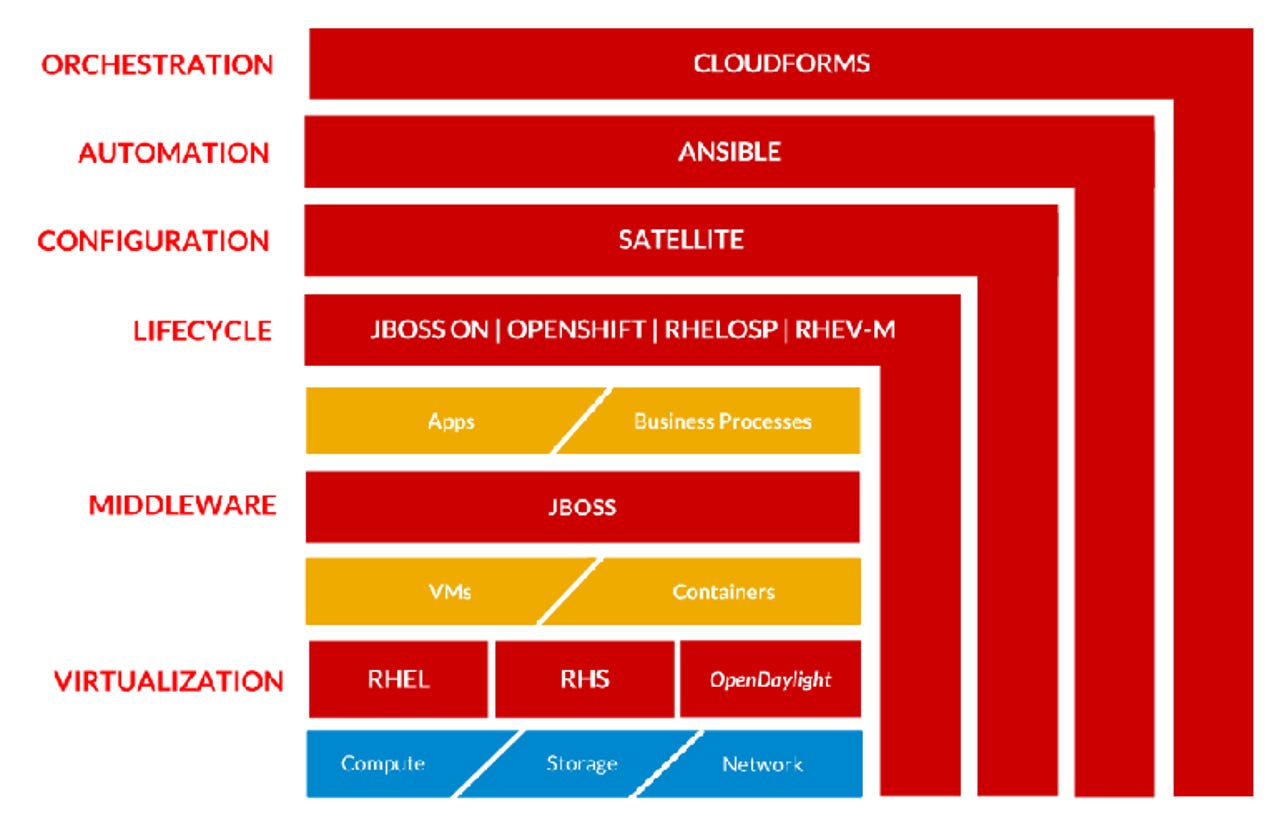Red Hat jumps into DevOps by buying Ansible

Ansible, Chef, Juju, and Puppet: If you know those names, you're working in cloud development/operations (DevOps). These are the programs that make it possible to deploy and manage dozens to thousands of virtual machines on clouds without ripping your hair out. Until recently, these were relatively small, independent companies. Now with Linux giant and would-be cloud power Red Hat buying Ansible for $150-million, things are changing.

What Ansible brings to the Red Hat's OpenStack-based OpenShift cloud is an agentless cloud management approach. Like most DevOps programs it doesn't require any special coding skills. This makes it much easier to automate cloud deployment and configuration to rolling upgrades. Specifically, by adding Ansible to its hybrid management portfolio, Red Hat hopes to help customers to:
- Deploy and manage applications across private and public clouds.
- Speed service delivery through DevOps initiatives.
- Streamline OpenStack installations and upgrades.
- Accelerate container adoption by simplifying orchestration and configuration.
While Ansible isn't likely to change the role that Red Hat Satellite plays in Red Hat Enterprise Linux (RHEL) server management, it does beg the question: What will Red Hat do now with CloudForms? Ansible is far more popular with developers on GitHub and CloudForms has never quite seemed to have fit into the Red Hat cloud story. It seems highly unlikely that Red Hat needs two DevOps programs.
What a hybrid cloud is in the 'multi-cloud era,' and why you may already have one
After all, as Joe Fitzgerald, Red Hat's vice president of Management, said in a statement, "Ansible is a clear leader in IT automation and DevOps, and helps Red Hat take a significant step forward in our goal of creating frictionless IT. Red Hat is transforming IT management, driving innovation that is 100% open source, built on an open management platform, and relentlessly focused on reducing cost and complexity through ease of use and automation."
Nevertheless, Alessandro Perilli, Red Hat's General Manager of Cloud Management Strategy, claimed in a blog posting that:
- Red Hat CloudForms will continue to offer overall orchestration and policy enforcement across all architectural tiers we support, within the corporate boundaries and on public clouds.
- Ansible will automate the provisioning and configuration of infrastructure resources and applications within each architectural tier, as requested through the CloudForms self-service provisioning portal. This will include deploying Red Hat Satellite agents on bare metal machines when the use case requires it.
But, Ansible can, and I suspect will, subsume CloudForms' overall orchestration and policy enforcement work.
The acquisition has also met with the approval of others outside Red Hat and Ansible's orbit. Mark Shuttleworth, founder of Canonical and Ubuntu, said, with tongue-in-cheek, said on Google+, "Very happy for the Ansible folks! It seems the 'Just Like Juju' club will grow even faster than I imagined ;)" Juju is Canonical's outstanding homemade DevOps program.
Shuttleworth is doing more than kidding a rival. He's making an excellent point. The cloud, and thus DevOps, is mature enough that the day has come when mergers and acquisitions lie in these companies' future.
Related Stories: